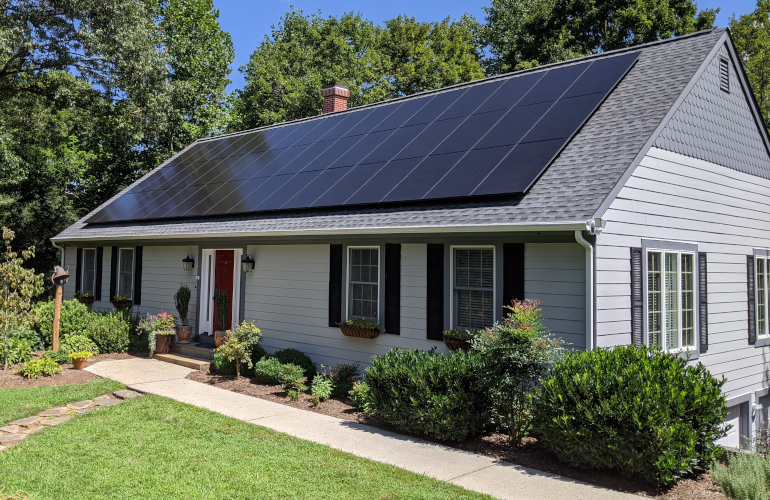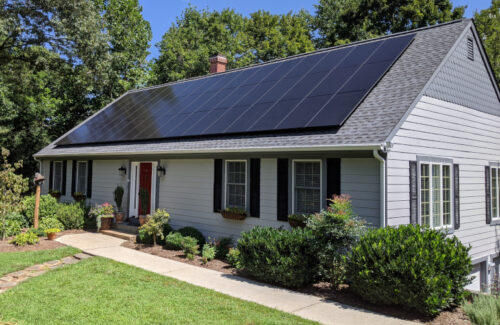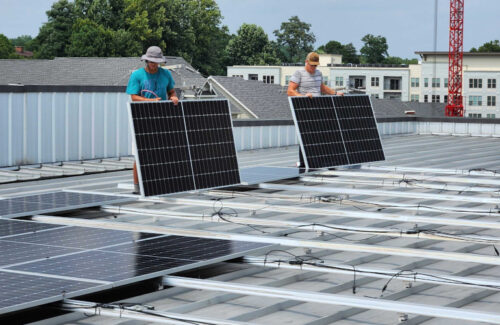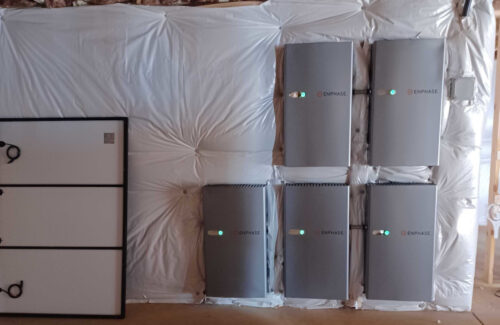Net-metering policies are shifting across the country, and solar installation companies have a right to be concerned. California’s NEM 3.0 slashed export compensation rates, Hawaii transitioned to a self-supply model and states like Arizona and West Virginia have significantly reduced net-metering rates. Now Virginia is in the crosshairs, with Appalachian Power Company (APCo) proposing to cut net-metering compensation by more than 70%. When enacted, these attacks on net metering can have big effects on the solar industry.
For small solar installation businesses, this is a real threat — but there’s hope. By looking at how markets like California and Hawaii navigated similar shifts, we can take proactive steps to protect our businesses and keep solar viable.
Advocacy and coalition building: Fighting for fair policy
If your state is facing a net-metering overhaul, it’s not over yet. Utilities often try to push these policies through quietly, but public pressure can shift the conversation. Here’s how you can fight back:
- Partner with nonprofits and industry groups – Organizations like SEIA, Sierra Club, Solar United Neighbors and local environmental groups have experience in policy battles and can help rally support. Reach out and join or create coalitions so you can create a cohesive message that combats the myths perpetuated by utilities.
- Educate ratepayers – Ensure customers understand the full picture.
- Engage with legislators – Bring these issues to the attention of your state representatives. Many do not fully understand the long-term benefits of distributed solar.
- Encourage public testimony – Utilities rely on a lack of public opposition. Mobilize customers to submit comments and attend hearings.
Policies can change if they are brought into the light. Public support has reversed or mitigated net-metering rollbacks in several states, so don’t assume the fight is lost.
Educating customers and debunking the cost-shift myth
A key part of advocacy is ensuring that customers understand why utilities’ arguments against net metering are flawed. Utilities claim that rooftop solar shifts costs onto non-solar customers, but studies have repeatedly found little to no evidence of this. In reality, distributed solar benefits all ratepayers by reducing strain on the grid, lowering peak demand and decreasing the need for expensive grid infrastructure upgrades.
If utilities were truly concerned about cost-shifting, they would apply the principle evenly across their entire business model. Instead, they selectively target solar while ignoring the massive cost shifts inherent in their operations:
- Infrastructure costs for industrial customers – Residential ratepayers typically subsidize the cost of grid expansions and power plants, even if the added demand comes from other sectors, such as industrial data centers — yet utilities never cite this as an unfair cost shift.
- Rural vs. urban subsidies – Rural customers require substantially more investment per capita to provide electric service, but urban customers pay the same rates, effectively subsidizing rural infrastructure costs.
- High energy users vs. low energy users – All residential customers pay the same base rate, yet those who consume more electricity place a greater burden on grid infrastructure. In many cases, lower-income households with lower energy usage are subsidizing wealthier, higher-consuming households.
By equipping customers with this knowledge, solar companies can push back against utility misinformation and rally stronger public support for fair energy policies.
Preparing for the worst: Expanding into storage
The upside to bad net-metering policies is that they make batteries a necessary investment. In California, the battery attachment rate skyrocketed to 60% under NEM 3.0, up from just 10% under the old system. Hawaii, which moved away from net metering years ago, now sees battery attachment rates exceeding 90%.
Batteries allow homeowners to self-consume the energy they generate, reducing reliance on net metering altogether. Instead of exporting excess solar power to the grid at reduced rates, homeowners can store that energy onsite and draw on it when needed. While it’s true that fewer homeowners may choose to install solar in the absence of strong net-metering policies, those who do are more likely to invest in complete solar + battery backup systems. This increases the overall value of each job, even if total installation volume decreases.
What solar companies can do now:
- Position yourself as a battery expert – If you haven’t found a home battery package that you like, now is the time to learn one (or two) well, and get established with your reps and vendors.
- Educate homeowners on the tax credit – As of now, batteries qualify for the 30% federal tax credit, making them more affordable.
- Optimize for self-consumption – With lower export rates, customers will benefit most from using their solar power directly. Helping customers design systems that prioritize on-site energy use will ensure they still see financial benefits despite net-metering reductions.
Reflecting on a decade of solar growth
Despite challenges to net-metering policies, the solar industry has witnessed remarkable growth over the past decade, offering a positive outlook for the future. The rapid advancements in battery technology, decreasing costs and growing environmental awareness suggest a promising future for solar panels and storage. By staying informed about policy changes, embracing innovations like energy storage and advocating for supportive policies, companies can continue to thrive and contribute to a sustainable energy landscape.
Matt Powers is the founder of Virtue Solar, a solar installation company in Charlottesville, Virginia. Matt is a Master Electrician with over 10 years of experience installing and managing solar operations. Matt is passionate about sustainability, outdoors, rock-climbing, local food and music, and wants you to have a great day.




